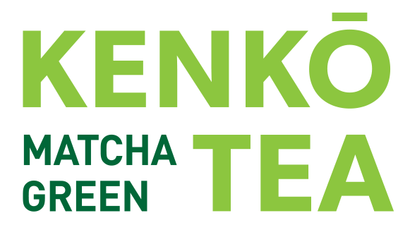
Why matcha is the best pre workout supplement?
Look at any supplement store and you will see hundreds of pre-workout supplements. Their claims range from increased energy, more stamina and enhanced fat loss to faster metabolisms and increased muscle building.

But many of these supplements are unregulated, full of untested chemicals and have a lot of unwanted side effects.
So what if there was a completely natural supplement to take before a workout that could actually boost your workout regimen? One that increases focus, gives you more energy, increases your metabolism, boosts fat burning and is completely natural and organic?
Well, there is one! Bring on Matcha Green Tea… the ultimate pre-workout supplement.
But how exactly does matcha green tea aid weight loss, increase muscle building and energy levels while also keeping you focused?
Never fear. We’ve explored the science and broken it down for you:
EGCG- An excellent pre-workout booster
The most abundant antioxidant found in matcha is EGCG, a molecule from the polyphenolic catechins group found commonly in green tea.
EGCG has been scientifically proven to have anti-inflammatory, anti-microbial and anti-cariogenic properties. Many studies have also found EGCG helps weight loss by boosting metabolism and fat oxidation.
It also aids the skin by reducing the effect of skin aging and acne development.
There is another benefit that lots of scientists and nutritionists believe EGCG to have too – its effect on workout performance and endurance.
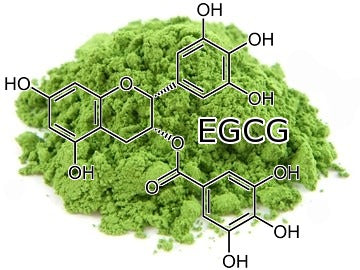
Many scientific studies have shown catechins improve workout performance. Matcha Green Tea also has many other nutrients, such as caffeine and l-theanine, which greatly boost training performance.
So, does matcha green tea help with working out? Let’s look at a detailed and comprehensive study on how matcha improves workout performance.
Following is the infographic for you to have a quick look at the benefits of matcha for physical training performance.

Science of Exercise in Humans
To understand the effect of EGCG from matcha on workout performance, it’s good to know how the body responds to exercise.
There are many factors that can affect workout performance and the body’s endurance. One of the lead factors is fatigue. There are four causes that lead to fatigue:
1. Lactate production
When the body is exercising, lactic acid is produced as the by-product. The accumulation of lactic acid in the muscle leads to muscle fatigue which affect exercise endurance.
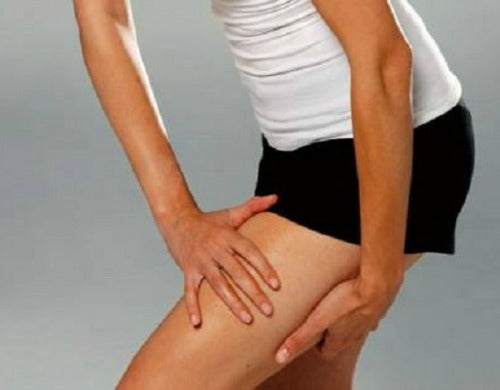
2. Low oxygen (O2) uptake
During physical activity, oxygen intake is slower while working muscles require O2 levels three times higher than resting muscles to sustain the activity. As O2 delivery to muscle is slower, it causes exhaustion and weakness in muscles, leading to lower workout endurance.
3. Dehydration
Dehydration in exercise results in increased body temperature and heart rate, with possible increases in the use of carbohydrates. It increases exhaustion from heat strain and causes decreased blood volume, which affects circulation and O2 delivery.
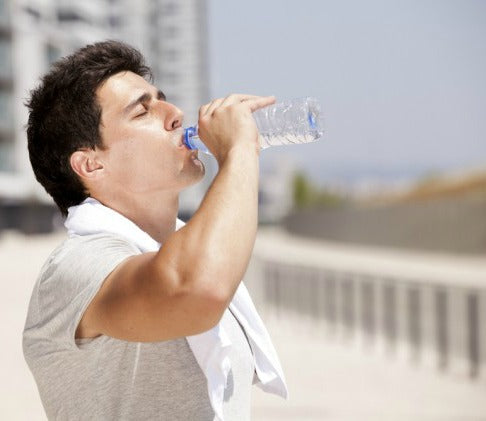
4. Stored carbs depletion
In intensive training, glycogen, stored carbs, is used for energy. When glycogen is used up to depletion, signals from the brain are sent to muscles to reduce their efforts, leading to muscle fatigue. Therefore, to prolong workout endurance, athletes need to ensure a sufficient supply of carbs in the body.
So then, how does matcha help improve workout endurance and performance?
Many scientists believe matcha is a potential energy drink for intensive workouts because of its rich content of catechins and caffeine.
These two molecules are found to have positive effects on the causes of fatigue, which we discussed above.
With this in mind, let’s take a look at six ways matcha can improve exercise performance:
7 Ways Matcha Can Help with Working Out
1. Effect of Caffeine and Catechins on Energy Level
Matcha contains a small amount of caffeine, about 25-35 mg/g, compared to 80-100 mg per cup of brewed coffee.
The effect caffeine has for enhancing physical and mental energy is widely recognized. Caffeine increases the release of catecholamines, a neurotransmitter, such as adrenaline, which makes your heart beat faster, sends more blood to the muscles and tells your liver to release sugar into the bloodstream for energy.

Another study also discovered the combination of caffeine and EGCG from green matcha tea boosts energy expenditure by 8% compared to caffeine alone. EGCG can improve endurance capacity by itself, but the combination of caffeine and catechins in matcha increases endurance by a greater degree.
2. Effect of L-theanine and Caffeine on Concentration and Energy Level
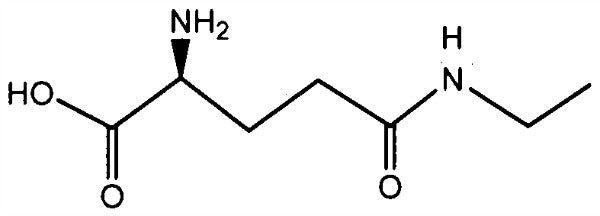
Unlike coffee, matcha also has L-theanine, an amino acid known for its calming, yet alert properties on the brain.
Many studies show that it stimulates alpha waves in the brain, which are associated with focus and alertness. For this reason, Zen monks have long used matcha to help them focus during meditation.
With regard to exercise, L-theanine has been found to help enhance concentration and mental stamina and assist athletes in getting them through a tough training session.
Moreover, the synergy of L-theanine and caffeine helps boost energy. L-theanine counters the effects of energy crashes, jitters or feelings of anxiety commonly associated with caffeine. This makes matcha driven energy levels and focus last for 4-6 hours, increasing exercise endurance.
3. Effect of Caffeine on Carbohydrate Absorption
One of the ways to prevent carbohydrate depletion during a training session is by consuming extra carbohydrates before you exercise. However, the body’s absorption and use of carbohydrates is slow due to certain mechanisms in the intestine.
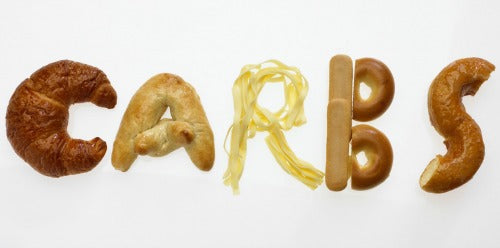
Recent studies have shown that caffeine enhances theuse of carbohydrate. It means caffeine helps the body efficiently use the extra carbohydrate and decreases the consumption of endogenous energy stores, aka glycogen. This helps reduce the risk of fatigue and prolongs endurance.
4. Effect of Catechins on Fat Burning
During intensive workouts, glucose is an undesirable energy source, as the energy content in carbs (4 calories/g) is lower than in fat (9 calories/g). EGCG promotes burning fat for energy by 17% compared to non-EGCG consumption during exercise.

A study in 2005 on mice has shown that weight was reduced by 47% from consuming catechins alone, 24% from regular exercise, and 89% from combining catechins and exercise.
Matcha is a super fat burner! With more fat being burnt, your body looks fitter and firmer with your muscles appearing more toned.
5. Effect of Catechins on Stored Carb (Glycogen) Depletion
Many studies have found that consuming catechins reduces the risk of carbohydrate depletion.
Catechins in matcha enhance fat burning for energy during exercise, which in turn reduces the depletion rate of stored carbs.
With more carbs stored, you then have more backup energy during resting time, which enhances your ability to recover from hard training.
A study by Japanese scientists on the effect catechins had on the swimming endurance of mice found that the substance prolongs time to exhaustion by 8-24%. This is because the catechins promote the use of lipids as an energy source, therefore reducing glycogen consumption and prolonging endurance.
6. Effect of Catechins on Lactate Production
Another way catechins prolong endurance is by decreasing lactate production. The catechins produce lactic acids during physical activity, leading to fatigue and soreness in the muscles.
Catechins from matcha help the immune system reduce inflammation in muscles from oxidative stress during exercise, which helps repair the muscle in the long run.
Catechins also lower levels of lactate in the blood and muscle by stopping the use of glucose for energy. This helps improve endurance for fitness training.
7. Effect of Catechins on Oxygen Uptake
Oxygen availability is crucial during exercise. When working out, our muscles require a higher O2 supply in order to function and endure stress. Catechins have been found to increase VO2max, the gold standard measure of endurance performance (the rate a person can consume O2).
A study from the University of Birmingham discovered the consumption of catechins can make the VO2 boost to 60% of maximal oxygen consumption when during 30-minute cycling.
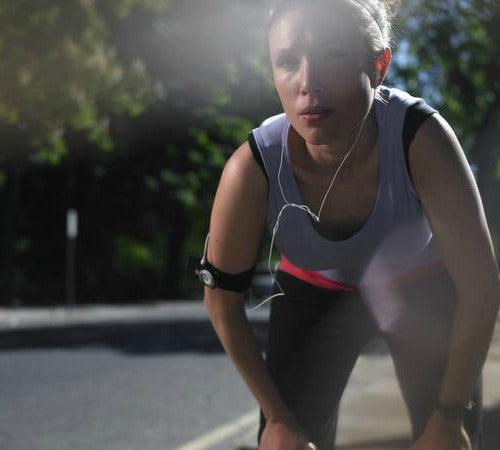
How to use matcha to reach your fitness goals?
Want to get all these benefits of matcha to aid you in building muscle and burning fat, but not sure how much matcha to use?
For Muscle Gain
Try adding 5g of matcha tea to a pre-workout protein shake. This contains about 150 mg of caffeine (without the jitters). Drink this 30 minutes before your workout for the best results. This will increase endurance, stamina and focus; perfect for powering through those last few reps.
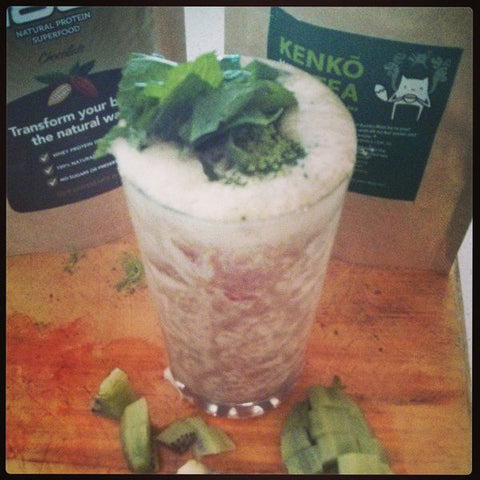
The L-Theanine and caffeine in matcha will give you the focus and energy to power through your workout, while the protein will give your body the fuel to perform better and assist in muscle gain. Add in some quick burning carbohydrates and you have the PERFECT pre-workout shake.
For Fat Loss
Prepare a low caloriematcha iced tea with 3 g of matcha or simply add 3 g of matcha to a bottle of filtered water and shake!
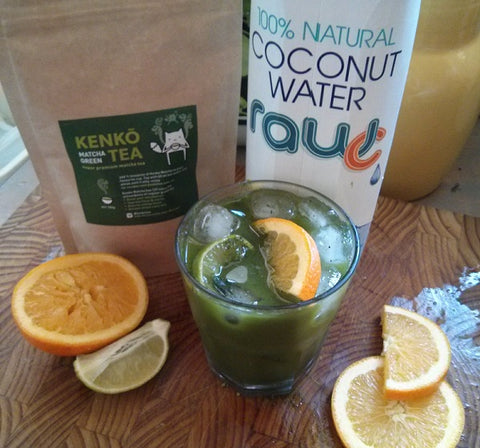
Sip on this before and during your workout. You will get all the metabolism boosting effects, intense focus and increased energy to blast through your workouts without the extra calories.
This mix contains about 90 mg of caffeine - about the same as a brewed cup of coffee, and is ideal for sustained energy during a cardio or weight session.
---ooOoo---
Although there is controversy about the effect of catechins in humans, we can see from many scientific studies that matcha provides many benefits in improving workout performance.
Takatoshi Murase, one Japanese scientist, estimated that an 75-kg (165 lbs) athlete would need to drink about 4 cups (0.8 liter) of green tea daily in the long term, to match the effect that found in mice.
With its content of l-theanine, catechins and caffeine, matcha is a great workout supplement that helps you tone up, boosts energy levels, and enhances performance capacity during a workout.
---------------------------------------------
Love posts like this? If yes, please don't forget to
